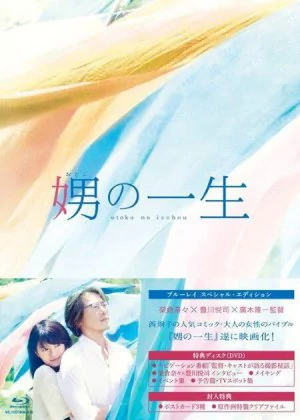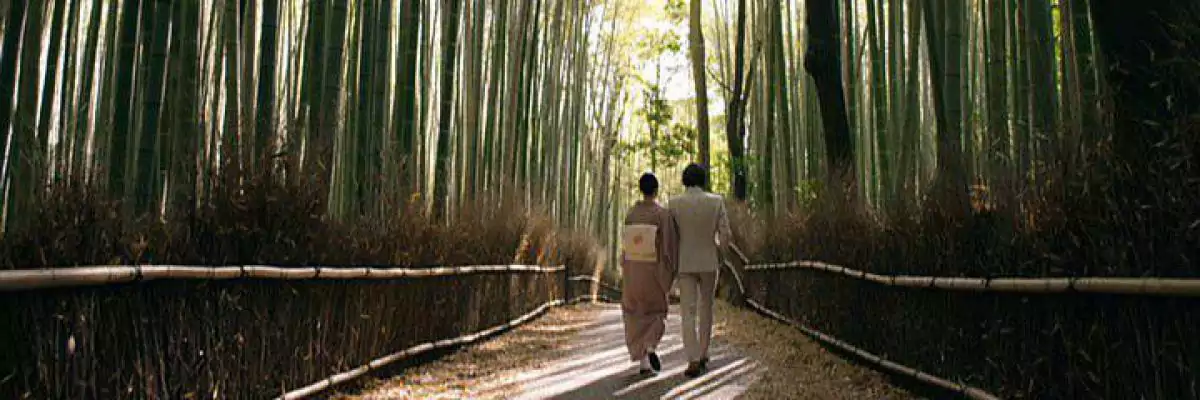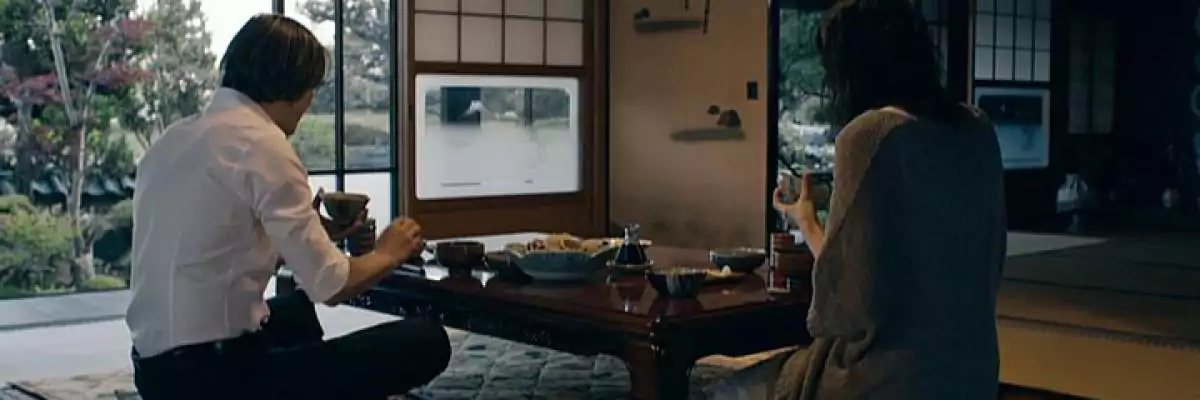Her Granddaughter

Japanese drama cinema is slowly recovering from its near-total implosion. After doubling down and focusing almost entirely on the domestic market, more recent outings have been looking beyond the island borders once again. Ryuichi Hiroki's Her Granddaughter [Otoko no Issho] lands on the softer, less edgy side of the genre, but is handled with enough subtlety and integrity to hold its own. It may not be a very spectacular film, but it's definitely more than just quality filler.

You might not realize from watching this film, but Her Granddaughter is still somewhat of a compromise (at least on paper). Even though it feels like a genuine, original drama, Her Granddaughter is actually an adaptation of a lauded manga (that goes by the same name). Don't expect any crazy mangaesque antics though. I'm not familiar with the source material, so I can't say how much it deviates from that, but this film could just as well have been an original Hiroki.
The film revolves around the relationship between Tsugumi and Kaieda. Not a very novel premise, except that there's a considerable age gap between the two (I'm guessing it's about 30 years). When Tsugumi's grandmother dies, the both of them end up living in her old house. There it is revealed that Kaieda was once in love with Tsugumi's grandmother, so needless to say the two have some things to work through before they can settle down and fully enjoy each other's company.
With a story like that the drama could go either way, but surprisingly it turns out to be one of Hiroki's softer films. Maybe it's because of the rural setting, which tends to work better in more placid, serene dramas, sporting lots of traditional drama imagery (people riding their bikes in between the paddy fields, mountains in the back, small-town railway stations - if you're familiar with Japanese dramas you know what I'm talking about). If you were hoping for a more edgier and taboo-confronting film, you're pretty much out of luck.

With Her Granddaughter it seems that Hiroki further refined his visual signature. He makes the best of the setting, cramming in as many green, sunny and beautifully lit landscape shots as possible. It gives the film a very warm, calming and welcoming atmosphere. Indoor shots are traditionally a bit darker, but nice framing and smooth yet subtle camera work give them a refined edge (and the openness of traditional Japanese houses makes sure that nature does make its way into the frames). The film doesn't look spectacular, but nonetheless very attractive.
The soundtrack is what you'd expect from a film like this. Piano tunes and string arrangements add to the docile, warm feel of the film, but it's all well within the range of what could be expected. Near the end the music gets a bit more sentimental, even going as far as to include two J-Pop songs. A bit unnecessary if you ask me, but it's not past the point of the acceptable. So all in all it's a pretty decent soundtrack, just nothing special or noteworthy.
As for the casting, Hiroki is up to his usual tricks. The cast doesn't look too spectacular on paper, but he really gets the most out of them. Nana Eikura is mostly known for her TV work, yet she shines as the somewhat frail, yet headstrong Tsugumi. And while Etsushi Toyokawa is a true veteran, this is without a doubt one of the better parts of his career. Add a short but worthwhile part for Sakura Ando (one of the most promising contemporary Japanese actresses) and you have a strong, worthwhile cast that carries the emotional part of the film with ease.

What makes Her Granddaughter rise above the competition is the very natural, low-conflict way Hiroki portrays the relationship. While there are some hurdles for the couple, it's never really about their age difference. There aren't too many meddling villagers, no worried relatives and no pouty kids fighting their relationship, it's just two people meeting and falling for each other. A relief, especially when these kinds of relationships are still considered a little taboo.
Her Granddaughter is another worthwhile addition to Hiroki's oeuvre. Why a film like this can't garner a bigger international response is beyond me (especially when you see Koreeda's latest films are still released internationally), what I do know is that it's not an issue of quality. Her Granddaughter is a beautiful, serene and heart-warming little drama with no false notes, no overt sentimentality and no obvious tear-jerking. Hiroki still has it in him and hopefully he'll resurface on the international scene once more, because his films deserve a bigger audience.